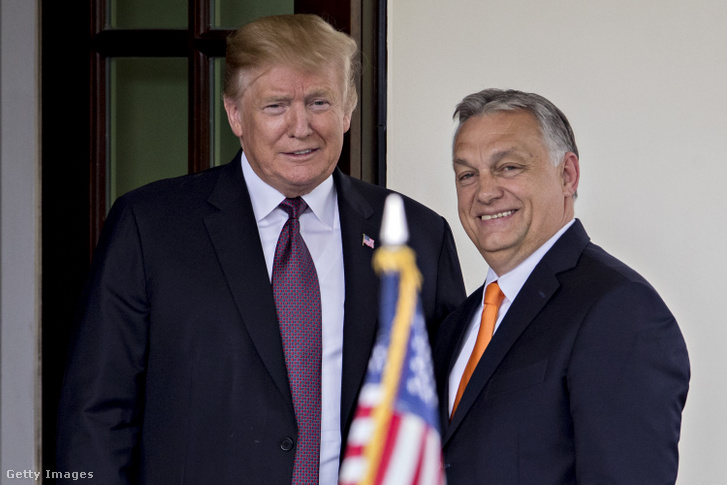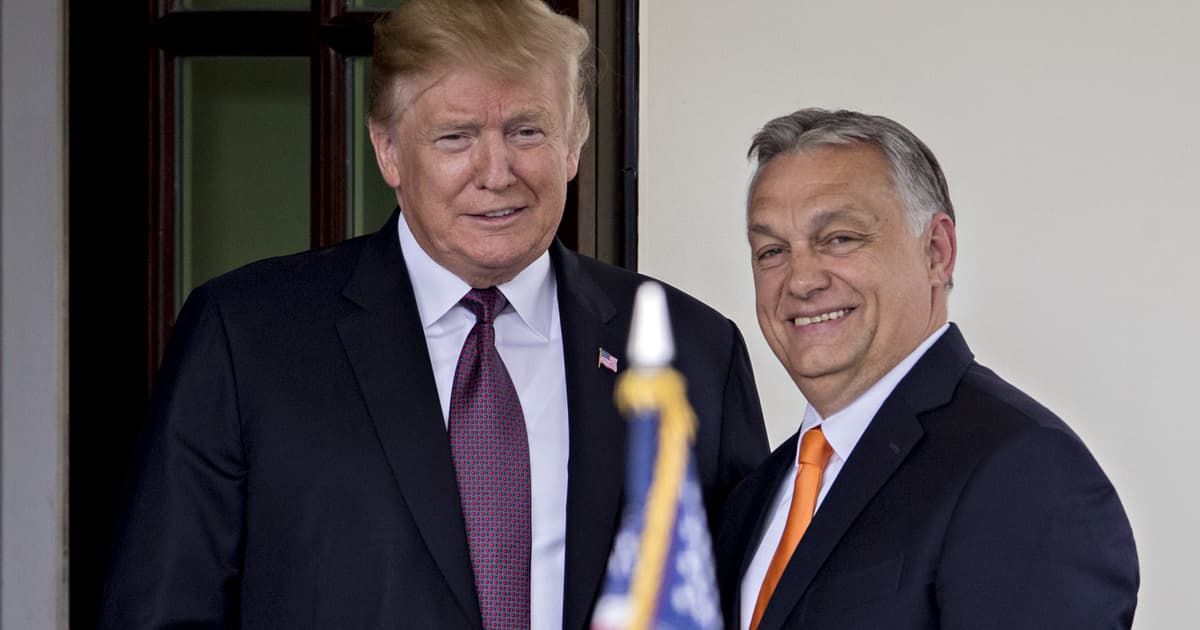For Viktor Orbán, the summit between the American and Russian presidents in Budapest could be a domestic political weapon: it strengthens the peace narrative and is a sharp response to accusations of isolation. The Tisza Party, on the other hand, could find itself in a difficult situation, as international attention could push Péter Magyar's campaign into the background for weeks. This is Snapshot, Index's series of analytical articles that helps you navigate the political map week after week.
As the host of the Trump-Putin summit in Budapest, Viktor Orbán can strengthen not only his foreign policy position but also his campaign position. The international attention could refocus the campaign for weeks, pushing domestic policy issues into the background, while offering the government side an opportunity to emphasize the Prime Minister's leadership role and Hungary's international weight. Viktor Orbán's international presence could further strengthen the sense of stability.

However, the fact that the summit is expected to dominate public discourse could pose a serious challenge for the Tisza Party. Péter Magyar will have to find the messages with which he can maintain his party's visibility and counterbalance the government's communication advantage.
The question also arises as to how much this could affect the weight of the political competition on October 23: even if the Tisza Party manages to mobilize effectively, its message could easily be suppressed by the fact that the government is preparing for a summit event of historical significance.
It could be the government's domestic political trump card
According to Tibor Attila Nagy, the permanent political analyst of Snapshot, it would undoubtedly be the greatest diplomatic feat of Viktor Orbán's career as prime minister if the Trump-Putin summit were to actually take place in the next two weeks.
Such summits are not common in international life, and it is particularly rare for negotiations of such a large scale and significance to take place in the Hungarian capital. The announcement of the Budapest meeting – which was later confirmed by the Russian side – can be considered a serious diplomatic success in itself, as it was immediately reported by the authoritative international press and television channels
– the analyst pointed out.
At the same time, he also warned that “the day must be praised with caution”: the real success for Viktor Orbán will be if the Trump-Putin meeting actually takes place after the announcement, and the event takes place without any problems in Budapest. He highlighted that on Friday morning, the Prime Minister spoke restrainedly on Kossuth Radio about the upcoming summit, urging calm, saying that “it is not worth drinking to the bear’s skin in advance.”
According to Attila Tibor Nagy, however, it is already clear from Orbán's interview on Friday morning what domestic political advantage the prime minister and the Fidesz-KDNP faction hope to gain from the Trump-Putin summit in Budapest.
The fight for peace and the policy of peace could be one of the slogans that the government could build around the summit. The prime minister's interview on Friday also revealed that Viktor Orbán sees the event as a vindication of his Ukraine policy so far. The emphasis on peace and the promise of avoiding war are traditionally strong messages among Hungarian voters: unlike, for example, Serbia, in Hungary the civilian population has minimal gun ownership, society is risk-averse, and highly values security, stability, and peace. This was also supported by the 2022 election: when Péter Márki-Zay was made to believe during the campaign that he would send Hungarian soldiers to the Ukrainian front as prime minister, his political chances were practically zeroed out. In Hungary, anyone who is labeled as pro-peace and the public finds this credible has a good chance of winning the elections
– said the analyst, adding that the prime minister's job is made easier by the fact that he and his government have consistently emphasized the need for peace since the beginning of the Russian-Ukrainian war,"even if they are reluctant to talk about how to achieve it."
A snappy response to the accusation of isolation
Attila Tibor Nagy emphasized that if the summit in Budapest actually takes place – especially if it ends with results – Viktor Orbán can prove to the domestic public that he has not only spoken about the need for peace in connection with the Russian-Ukrainian war, but has also taken concrete diplomatic steps to this end during his presidency of the European Union. The Budapest summit could culminate this process.
It would also be of great importance for the domestic legitimacy of the current government if the Trump-Putin meeting were to take place in Budapest. The summit could be a resounding refutation of the recurring criticism that links the government's foreign policy to the country's international isolation. After all, what kind of isolation can we talk about when two of the world's most influential leaders choose the Hungarian capital as the venue for their talks, and with the international press and media paying close attention to it? It would also be a spectacular moment as a media event: the geographically distant American president's appearance in Budapest would carry political symbolism in itself and would elevate the Hungarian capital to the center of international diplomacy for a few days. The presence of a large number of journalists and television crews could also create a favorable situation for the government in terms of campaign communications, as spectacular cut-outs and strong political messages could be built around the meeting
– the analyst assessed.
Tisza must respond with a spectacular show of force
According to Attila Tibor Nagy, it is likely that the Trump-Putin meeting will also overshadow Péter Magyar. The extraordinary importance of the event could easily overshadow the Tisza Party chairman's Facebook posts and videos, as the summit will have the greatest news value.
The Tisza Party president will have to somehow find a way out of this situation. However, the summit – even with its aftermath – is unlikely to be able to set the political agenda until the end of the campaign, not least because Hungarian voters – as the 2024 research by Policy Solutions and the Friedrich Ebert Stiftung indicates – are primarily concerned with livelihood issues. Despite all this, the meeting has a good chance of giving the Orbán government the opportunity to dominate public discourse for at least a week – and even longer if it communicates skillfully.
The analyst added: It is crucial for Péter Magyar to be able to host a spectacular and successful event on October 23, which could mean two things.
- On the one hand, he needs to win the “war on numbers”: he needs to prove credibly, with pictures and videos, that more people participated in his event than in the Peace March branded with Viktor Orbán’s name.
- On the other hand, he needs a really strong speech, the kind that voters will remember weeks or even months from now, and that can significantly help him on his way to election victory.
Attila Tibor Nagy believed that if these two conditions were met, the chairman of the Tisza Party could partially offset the domestic political impact of the US-Russian summit expected to be held after the national holiday.

